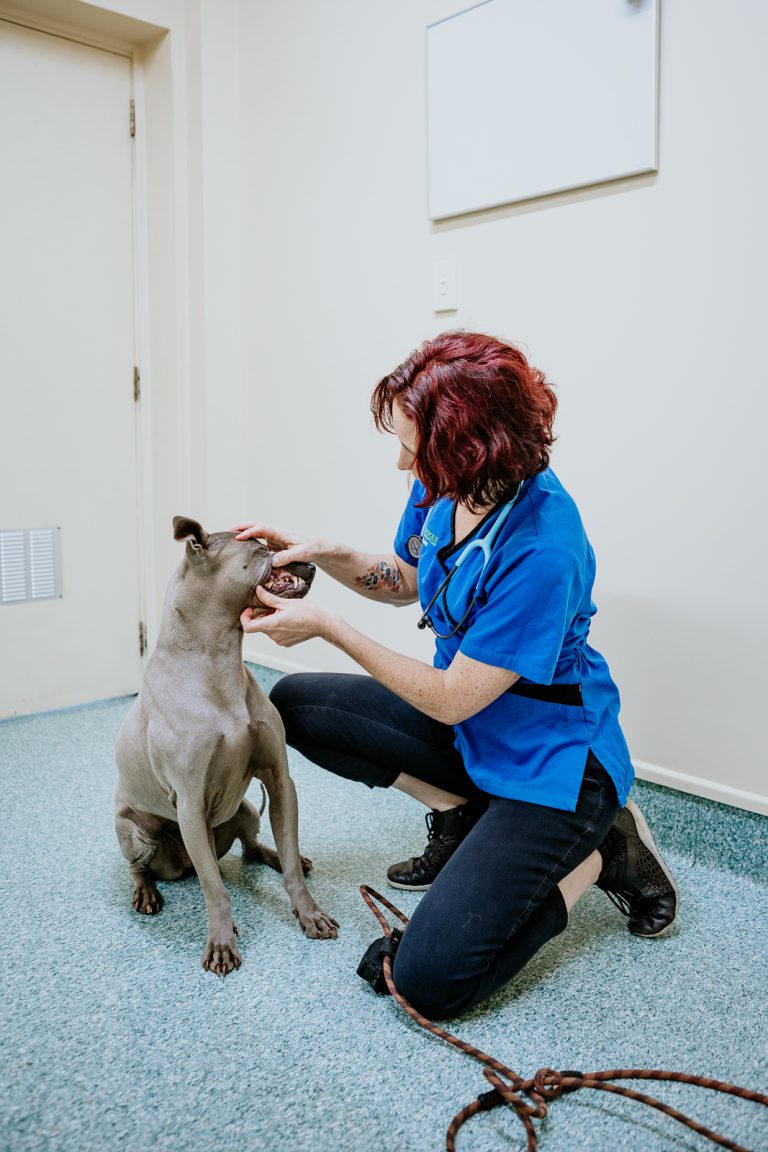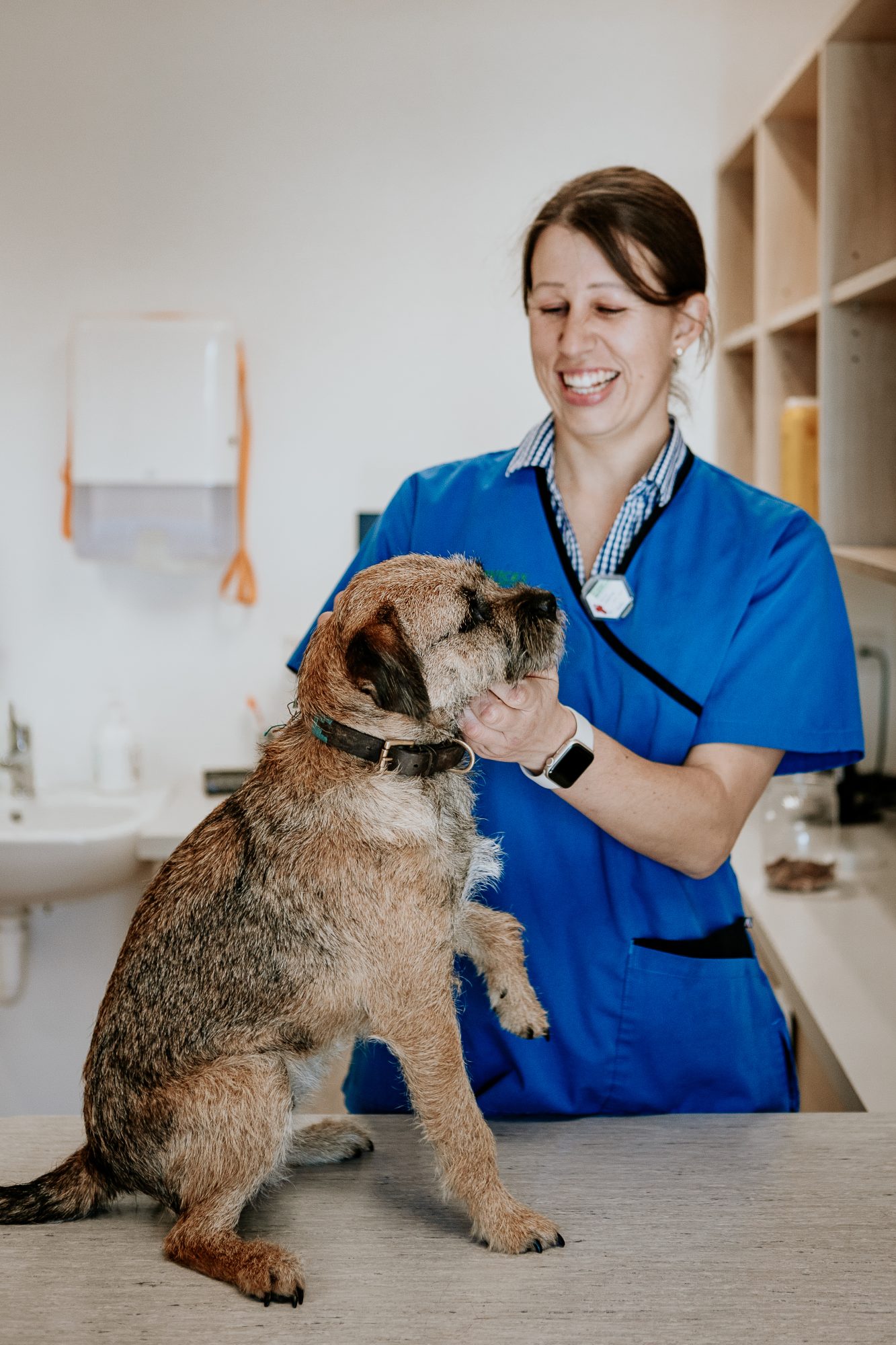Dental Disease
Why dental health matters?
Dental disease can cause:
- Pain and difficulty eating
- Bad breath and drooling
- Tooth lose and gum infection
- Damage to internal organs (heart, liver, kidneys), especially due to the constant exposure to bacteria from the mouth.
Daily at home tips:
Toothbrushing:
- Use a pet-safe toothbrush and toothpaste (never human toothpaste)
- Start slowly—let your pet lick the toothpaste first
- Brush their teeth daily to reduce tartar accumulating on their teeth
Dental diets & chews:
- Use vet-approved dental chews or treats that help reduce plaque. Ensure you factor these treats into their daily food allowance to avoid increasing their daily calories
- Consider a dental-specific diet if recommended by your vet
Water additives and oral rinses:
- These can help reduce bacteria and freshen breath
- Add to drinking water as directed
Regular mouth checks:
- Look for red gums, bad breath, drooling, or reluctance to eat
- Report and changes to your vet promptly
Monitoring and vet visits:
- Attend the regularly scheduled dental check-ups every 6-12 months
- Early intervention can prevent pain and reduce the need for surgery
- Your vet may recommend dental x-rays or a cleaning under anaesthesia if disease progresses

Frequently asked Questions
Will does my pet need a dental procedure?
Dental disease is common in pets and can lead to pain, infection, and organ damage. A dental procedure helps clean the teeth, treat disease, and improve overall health.
Is general anaesthesia safe for my pet?
Yes. We offer a full health check and blood tests beforehand to assess risk. Modern anaesthesia is very safe, and your pet will be closely monitored throughout the procedure by one of our experienced and qualified veterinary nurses.
Will my pet be in pain?
No. Anaesthesia ensures your pet feels no pain during the procedure. We also provide pain relief before and after to keep them comfortable during recovery.
What happens during the dental procedure?
Your pet will be anaesthetized, and we’ll perform a thorough oral exam, clean the teeth, take x-rays, and treat any issues like infections or extractions if needed.
How long will my pet be under anaesthesia?
Most dental procedures take 45 minutes to 2 hours, depending on the complexity. We monitor your pet closely the entire time. Some cleaning procedures can take as little as 20 minutes.
What should I do before the procedure?
Please follow fasting instructions (usually no food after 8 PM the night before). Let us know about any medications or health changes.
What should I expect after the procedure?
Your pet may be sleepy or groggy for a few hours. We’ll provide home care instructions, including feeding, activity, and any medications needed.
Will my pet need teeth removed?
If we find severely damaged or infected teeth, extractions may be necessary. We’ll discuss this with you before or after the procedure, depending on what we find.
How can I prevent future dental problems?
Regular brushing, dental chews, and routine check-ups help maintain oral health. We’ll recommend a dental care plan tailored to your pet.

Your pet & general anaesthesia
We understand that the idea of your pet undergoing anaesthesia can be worrying. This guide is here to reassure you, explain what happens during the process, and show you how we keep your pet safe every step of the way.
Why is anaesthesia needed for dental procedures?
Dental procedures require your pet to be completely still and pain-free. Anaesthesia allows us to:
- Thoroughly clean below the gumline
- Take dental x-rays
- Safely remove damaged or infected teeth
- Prevent stress and discomfort for your pet during treatment
- Perform pain-free treatment
Understanding the risks:
While modern anaesthesia is very safe, the procedure still carries some degree of risk. We take every precaution to minimize these, but risks may include:
- Mild nausea or grogginess
- Rare complications like breathing issues or allergic reactions
- Increased risk in older pets or those with underlying health conditions
We’ll discuss any specific concerns with you before the procedure.
After the procedure:
- Your pet may be sleepy or wobbly for a few hours
- Offer small amounts of water and soft food
- Keep them warm and quiet
- Avoid vigorous activity for 24–48 hours
We’ll provide detailed home care instructions and take you through any medications that are required
How you can help:
- Follow fasting instructions before surgery (usually no food after 8 PM the night before)
- Let us know about any recent health changes or medications
- Ask questions—we’re here to support you
Long-term dental care:
Good dental health means fewer procedures in the future. Things you can do at home to help are:
- Brushing your pet’s teeth regularly with pet-safe toothpaste
- Using dental chews or water additives
- Scheduling routine dental check-ups


